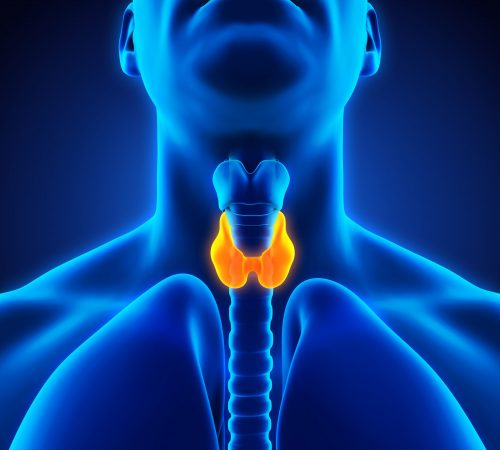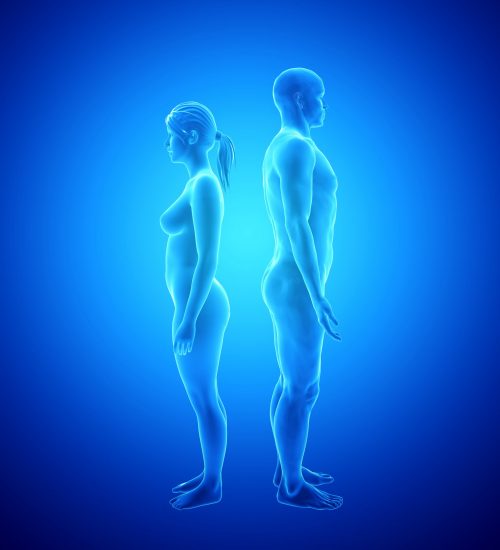TRT – The New Male Antidepressant

“I have of late, but wherefore I know not, lost all my mirth and indeed it goes so heavily with my disposition that this goodly frame the earth seems to me a sterile promontory; this most excellent canopy the air, look you, this mighty o’rehanging firmament, this majestical roof fretted with golden fire; why, it appeareth nothing to me but a foul and pestilent congregation of vapours. What a piece of work is a man, how noble in reason, how infinite in faculties, how like an angel in apprehension, how like a God! The beauty of the world, paragon of animals; and yet to me, what is this quintessence of dusk. Man delights not me, no, nor women neither, nor women neither.” – The Tragedy of Hamlet, Prince of Denmark (Act II, Scene ii, 285-300)
Introduction
Mental health is a significant public health problem, it is also a personal problem. It’s hard to pigeonhole because it’s a spectrum. I’m not clinically depressed according to the ICD-11, but I have good days and I have bad days. I have moments of despair, moments of self-deprecation, but I try to make sure that the good days outweigh the bad, it’s a work in progress. It’s not easy being happy all the time, in fact, it’s not normal or expected. Life is tough, life can knock you on your butt. Perhaps it’s supposed to? Bad times build character and mould you into the man in front of the mirror.
“Every man has his secret sorrows which the world knows not; and often times we call a man cold when he is only sad.” – Henry Wadsworth Longfellow
Life knocked me on my butt about 10 years ago. I took a few kicks whilst laid on the ground by people who should have lent me a helping hand, it was a hard but valuable lesson to learn. I did all the wrong things, I drew up the drawbridge, I turned towards unhealthy coping strategies and my machismo got the better of me. I was the master of my own destiny, I didn’t need help, I was stronger than the obstacle in my way and I was not going to quit. I was in a very dark, nihilistic place that seemed like home for a few months.
I approached my GP in a state of despair. I say despair, I was actually dead on the inside, but I had the insight to recognise that I needed help. I was in and out of his room in less than five minutes with a prescription for an SSRI. There was no offer of psychological support although, to be fair, I would have flatly rejected it anyway so the hand would have been pushed away. At the time male machismo was strong in me, to be honest it still is. I’m not convinced the anti-depressants helped, in my mind they were nothing more than a placebo. I believe it was the action of asking for help that made the difference, the realisation that I couldn’t shoulder this burden on my own. Asking for help is one of the hardest things to do, accepting it can be just as hard, but it’s one of the keys to recovery. It was the turning point in my journey back to mental well-being. I was lucky, I know that.
You need to work on your mental health every single day.
“I will not let anyone walk through my mind with their dirty feet.” – Mahatma Gandhi
Mental Health Statistics
- ¾ of all suicides are by men.
- In 2016, 4,300 men committed suicide.
- Suicide is the biggest cause of death for men under 35.
- 5% of men in the UK are suffering from one of the common mental health disorders.
https://www.menshealthforum.org.uk/key-data-mental-health
Health
Health can be subdivided into:
- Physical Health – A state where the person is free from illness or injury.
- Emotional & Psychological Health – A state where the person is in control of their thoughts, feelings, and behaviours.
The cornerstones of health are:
- Lifestyle – Sleep, stress, work, home life, environment, alcohol & drugs.
- Nutrition – Macronutrients, micronutrients, calories, water, real food vs chemicals
- Physical Activity
You need to appreciate the significance and importance of addressing every aspect of health. Each of these components are dependent, not independent. You need to keep up, you need to recognise that there is a fluidity to health and see this as a challenge worth addressing. Don’t get despondent, the end-point is death, and whilst there may be peace in death, there is also finality.
It’s important to recognise that optimal androgen levels are integral to physical and psychological health. Whilst the primary role of testosterone is to help facilitate grow and repair, your bioavailable androgen markers are incredibly important in maintaining mental well-being. Build upwards from your foundations.
When I counsel my patients, I try to emphasise the importance of understanding the complexity of health and to give them realistic expectations from testosterone replacement therapy (TRT). The road to optimisation can be a long one, especially if there are other aspects of your health that need addressing. It’s always a work in progress, much like life. We’ve spoken many times before about the need to appreciate the journey.
A Physician’s Journey
I was asked by a patient the other day if I ever get complacent? Whilst I am always delighted when a patient says they feel optimised, it doesn’t feed my ego and make me think that I can rest on my laurels. It makes me reflect, compare and contrast as I am constantly looking at ways in which I can improve the care I can offer.
Some days go better than others, I hope that I connect with the patient in front of me more often than I don’t. There are plenty of nice doctors out there, there are plenty of intelligent doctors, but you need the ability to relate and empathise with your patient in order to affect a truly positive influence on their well-being. The ability to contextualise and share a part of yourself goes a long way to providing effective care and establishing trust. It’s important to understand that medicine is as much of an art as it is a science. Science is an evolving process, you should always challenge your preconceptions and remain open to the possibility that you might be wrong and can change, adapt and refine your practice in order to improve the patient experience. I’ve spoken before about the shortcomings in adopting a sledgehammer approach to TRT, it simply doesn’t work. You need to have a personalised approach to patient care in order to work in your patient’s best interests to facilitate the best outcome for them(23). The art is merely the appreciation that there are complexities and processes involved that current data cannot sufficiently explain.
For every optimised patient, there are many more I’m still working with to get to that stage. The steps can seem small but if we are making progress, we can draw some satisfaction from this. Managing expectations and coping with disappointment is the hardest part of my job. I want you all to be happy and healthy, so I feel that disappointment too and it takes its toll. When you have an effective doctor-patient relationship, you, the patient, offload some of the burden of responsibility onto me so that you can grow. It troubles me when I hear that you aren’t optimised as it makes me question whether I can do anything more to help, whether I’ve done enough, or if there is something I could have done or do differently.
With the tragic passing of one of the pioneers of TRT, the late Dr John Crisler, it has made me reflect on the importance of looking after my own mental health. Whilst I did not know him personally, I can empathise with his situation and am merely speculating on the untimely reasoning behind his tragic demise. I can fully relate to the need to set boundaries with my patients and have down-time from clinical work in order to recharge my batteries. It’s not always easy, “I’m sorry to bother you”, “I know you’re busy but…”. I want the best for my patients, I have a relationship with all of them, it’s hard to switch off completely, in fact it’s nigh on impossible.
So, in answer to the question “Do you ever get complacent?”, the answer is a resounding NO! If I ever did, I’m sure HRH Lydia Hughes would bring me back down. She’s the calming yin to my raging yang.
The Role of Testosterone in Mental Well-being
I have discussed the role of testosterone in physical and psychological health before. The primary aim of testosterone replacement therapy is to restore your androgen levels to a state where they can help facilitate your body in achieving homeostasis. Not wanting to sound like a broken record, the purpose of this blog is to discuss the effect of testosterone on mental health, and break some of the misconceptions and stereotypes that have surfaced through ignorance and fear.
It is well recognised that low testosterone can cause symptoms of depression(1)(2)(3)(4)(5)(6)(7)(13), anxiety, depersonalisation and even suicidal ideation, and that testosterone replacement therapy can help improve those symptoms(9)(10)(12)(14)(15). We need to appreciate that the increase in the incidence of anxiety between the sexes is likely attributable to testosterone(8)(11)(16). I have reduced the dose, and subsequent levels, on a number of alpha guys who have wanted high normal levels, for them only to come back to clinic and admit that their anxiety has reduced and their libido and erections have improved – More is NOT better. Testosterone can work in your favour or against you, it can improve cognitive function(12)(17)(18)(19)(20)(21)(22). Simply being on testosterone replacement therapy is not enough, you need to have a protocol that restores your androgen levels to within physiological parameters and allows for stable levels(8). If you haven’t already, have a read of The Perfect TRT Protocol. If you approach the subject from a purely biological perspective, you are predetermined to want to survive and further your DNA to the next generation, so why would you want or need supraphysiological levels? Mental health is far more complex than simply having optimal androgen levels, but optimal androgen levels is an organic, reversible cause of mental health problems. There are also complex socio-economic, cultural, and environmental issues to factor in.
I don’t know the answer, but I’m pretty sure that we are the cause AND the solution. I think there is a fundamental lack of humanity and humility within our society. We have been manipulated into believing materialism is the key to success. We are encouraged to look out for self, fear-mongering has turned into an effective form of control. I see value in unity and understanding, I can also see danger and mistrust. We fight our DNA, the world is too big and we are lost in a rather perverse civilised world. You can affect a change, it’s simply a choice.
What Can We Do?
We are launching our very own campaign – #ChooseTRT – that will be aimed at increasing awareness surrounding the importance of optimised testosterone levels in restoring mental health. Raising awareness is not enough, we need engagement, we need an affirmative action plan. We will campaign for the addition of checking testosterone levels in men presenting to their doctors with mental health problems. I dread to think of the number of men who have been prescribed anti-depressants, found them to be ineffective, had their dosage increased, still ineffective, had their medications changed, only for the cycle to continue. One of my patients was on that road, he was referred to a psychiatrist. It turned out that he had low testosterone, now he’s optimised. He is now happy, no antidepressants, no talking therapies, just loving life. Relying on anti-depressants and talking therapies without looking for a reversible organic cause sets a very dangerous and worrying precedent.
Rob’s Final Thought
If you are damaged, if you’ve been through tough times and come out the other side a different person, don’t worry, often the most interesting people always have.
“The individual has always had to struggle to keep from being overwhelmed by the tribe. If you try it, you will be lonely often, and sometimes frightened. But no price is too high to pay for the privilege of owning yourself.” – Friedrich Nietzsche
You don’t have to conform to fit in with the belief or value systems of others, if history has proven anything, it is that no one has all the answers. You are a blank canvas, the artwork that is moulded through time and experience is what makes you unique. You simply must find a way to make your crazy fit in with society. That or start your own cult. Must dash, off to bark at the moon…
#ChooseTRT
Dr Robert Stevens MBChB MRCGP DipFIPT
References:-
- https://www.ncbi.nlm.nih.gov/pmc/articles/PMC4418274
- https://www.ncbi.nlm.nih.gov/pubmed/19625884
- https://www.ncbi.nlm.nih.gov/pmc/articles/PMC5209560
- https://www.ncbi.nlm.nih.gov/pmc/articles/PMC3992230
- https://www.ncbi.nlm.nih.gov/pmc/articles/PMC4330791
- https://www.ncbi.nlm.nih.gov/pubmed/15084139
- https://www.ncbi.nlm.nih.gov/pubmed/24047633
- https://www.ncbi.nlm.nih.gov/pubmed/30127767
- https://www.ncbi.nlm.nih.gov/pmc/articles/PMC3946856
- https://www.ncbi.nlm.nih.gov/pmc/articles/PMC3586838
- https://www.ncbi.nlm.nih.gov/pmc/articles/PMC4823998
- https://www.ncbi.nlm.nih.gov/pubmed/22972022
- https://www.ncbi.nlm.nih.gov/pubmed/20923289
- https://www.ncbi.nlm.nih.gov/pmc/articles/PMC4610613
- https://www.ncbi.nlm.nih.gov/pmc/articles/PMC4501899
- https://www.ncbi.nlm.nih.gov/pmc/articles/PMC3630276
- https://www.ncbi.nlm.nih.gov/pmc/articles/PMC5079177
- https://www.ncbi.nlm.nih.gov/pubmed/17132744
- https://www.ncbi.nlm.nih.gov/pmc/articles/PMC5078598
- https://www.ncbi.nlm.nih.gov/pubmed/16266286
- https://www.ncbi.nlm.nih.gov/pubmed/27662450
- https://www.ncbi.nlm.nih.gov/pubmed/26553159
- https://www.nytimes.com/2019/01/22/well/live/can-a-nice-doctor-make-treatments-more-effective.html?fbclid=IwAR0RUikf24u6p5hZYA8woTRKp8UIYDze6p1omXcyPV-xgGN08DSqqQm8lhw


